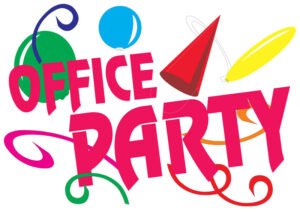As an employer, you’ve just received either a Summons and Complaint or Notification of a Charge of Discrimination filed with the EEOC or Illinois Department of Human Rights. Your first reaction is likely “we’ll litigate this to the death on principle”. After the chest thumping is over, and cooler heads prevail, an employer needs to conduct a hard analysis of the costs involved in “not a penny for tribute” attitude. Some employers look at claims of discrimination as simply a cost of doing business. For them, it’s simply a line item on the balance sheet, unless the impact is material. Others, mostly small employers, look at the process as a potential to break the Company. Either way, the damages available to a prevailing party under the primary federal employment law statutes are something that all employers should take into consideration.
Normally, in civil litigation, each party is expected to bear their own attorney’s fees. However, under all federal anti-discrimination, anti-harassment and anti-retaliation laws, if an employee prevails, the employee is entitled to recover his/her own attorney’s fees. Since these types of lawsuits are generally complex and time consuming, these fees can be substantial. In addition, the employer must pay its own attorney’s fees. Shifting fees to the employer raises the stakes dramatically since it is not unusual in a single plaintiff litigation for the attorney’s fees to be more than the potential damages.
In very limited cases (Title VII of the Civil Rights Act of 1964 and the Americans with Disabilities Act), a Court may award a prevailing defendant to recover its own legal fees. However, the bar here is very high. A prevailing employer must be able to prove that the case was brought on totally frivolous or unreasonable grounds. Almost never going to happen, trust me.
Damages under the federal statutes available to a terminated employee range from:
- Backpay: Generally lost income, Including wages, bonuses, overtime, and other lost premium pay from the date of termination to the date of the judgment;
- Lost Benefits: Generally, the cost of employer paid health insurance, vacation and pension contributions, as well as the cost of health care that would have been covered under the employer’s health insurance if the termination had not occurred.
- Front Pay: While not awarded often, a Court may award front pay designed to compensate a terminated employee who may have difficulty landing another position. Examples would include someone of advanced age, someone with a disability or someone whose reputation has been marred as a result of the offending employment action.
Keep in mind that the above types of damages are subject to an offset as the terminated employee has an obligation to mitigate damages by finding other work or benefits.
The Civil Rights Act of 1964, which covers most types of discrimination, also allows compensation for pain and suffering and punitive damages. However, there are caps on these types of damages, depending on the size of the employer:
Employers with 15-100 employees, the cap is $50,000
Employers with 101-200 employees, the cap is $100,000
Employers with 201-500 employees, the cap is $200,000; and
Employers with over 500 employees, the cap is $300,000.
The Age Discrimination in Employment Act (ADEA) specifically precludes compensatory or punitive damages. However, if an employer was found to have intentionally violated the statute, then liquidated damages (double the amount of backpay) may be awarded.
The Fair Labor Standards Act, (FLSA) which addresses minimum wage and overtime claims also contains a liquidated damages provision which can lead to a doubling of the amount of overtime which was not paid.
It should also be kept in mind that under certain state claims, there may be no limits or caps on damages, making it even more dangerous to throw caution to the wind and “defend at all costs”. Every litigant needs to be aware of the potential risks involved with employment litigation. It is time consuming, costly and disruptive. There are alternative dispute mechanisms, mediation or arbitration which may be a far less costly way to bring about a resolution.
With over 34 years’ experience in advising employers and employees on workplace issues, let Boznos Law work with you to ensure you are ready to meet the challenges posed by the changes to the employment laws. Call Bill Boznos today at (630) 375-1958 or contact us at www.boznoslawoffice.com/contact-us through our website.


